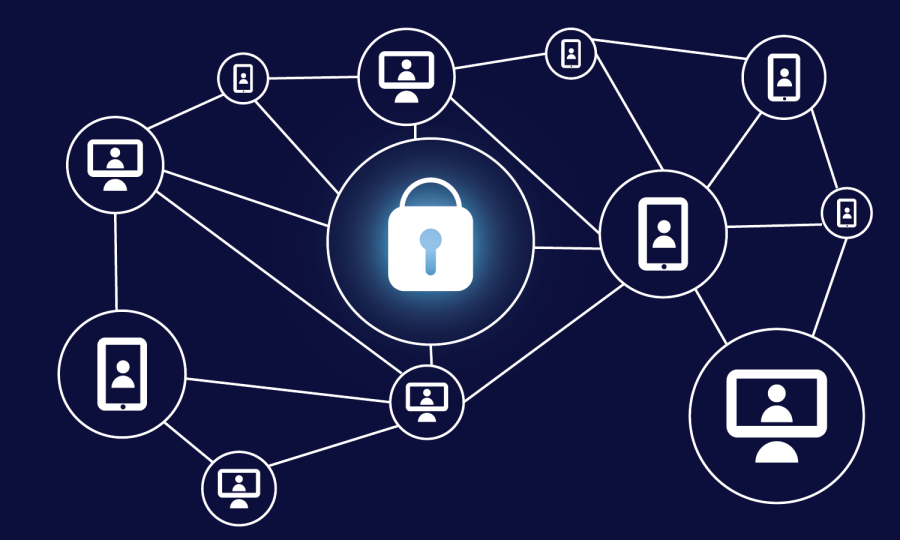RSO aims to integrate Blockchain into voting system
March 9, 2022
Since the oldest form of currency, The Mesopotamian shekel has been around, actions have increased the supply and/or liquidity of money. These actions tend to stimulate the economy, but increase the risk of inflation. Consequently, actions restricting the money in circulation tend to slow economic growth by increasing savings rates and making borrowing more expensive.
But Zayyan Faizal, senior in Grainger, has a solution for this problem.
Faizal, the founder and the president of a new RSO named Illini Blockchain, broke down what blockchain was and explained why he thinks blockchains could solve a large portion of the problems with current currencies.
“The core technology of blockchain is a system of computers that are able to cooperate together by maintaining and processing information without having to directly trust each other,” Faizal said.
Faizal said that each system in the network can only be traced to the next system and the previous system in the ‘chain.’ As a result, no computer alone is able to modify the state of the network and thus making it secure. Furthermore, no other central entity can manipulate the supply. The price of the cryptocurrency will increase as demand increases.
Get The Daily Illini in your inbox!
“It’s so much harder to hack or break into,” Faizal said. “We can provide a safe store of data, which can range from anything like personal data to the first use case of money, with Bitcoin.”
Faizal said that he first found himself getting increasingly interested in blockchain and cryptocurrencies following what’s commonly known as the ‘deFi (decentralized finance) summer’ which was a period in the summer of 2020 that sparked tons of lots of new projects in the space.
“Funny story,” Faizal said. “I started thinking about starting this club from a tweet. I saw other universities engaged in the crypto industry, and tweeted that UIUC should have something similar.”
Professor Andrew Miller, a professor in Grainger, who’s involved in research on decentralized systems, also saw the tweet. He then suggested a student organization about blockchains. Illini Blockchain was then founded.
Alec Chen, sophomore in LAS and co-founder of Illini Blockchain has been around since the RSO started.
“I head the developer teams with Zayyan,” Chen said. “My responsibilities leam towards our external team building on Solana. I also help around with organizational and administrative activities.”
Chen explained that since blockchain was such a technical topic and a big part of the club, he was fascinated by the fact that users are able to ship code that can contribute to the ecosystem without a ton of resources. This allowed him to contribute to many different projects.
“I remember I’d wanted to do Hack4Impact because I liked web development, wanted to build with other people, and join a community,” Chen said. “Zayyan emailed me afterward my Hack4impact interview, asking if I’d want to come to Illini Blockchain’s first meeting.”
For Muskan Bhatla, sophomore in LAS and a current member of the RSO’s research analyst team, blockchain is a niche topic.
“What particularly interests me is the bandwidth for creativity and flexibility as this topic is largely unexplored,” Bhatla said.“There remains endless opportunities and prospects in this field of cryptography and algorithm development for which there is no correct one answer, and instead, a chance to explore the possibilities.”
Faizal elaborated on a new model the RSO is testing out to incorporate into the voting system. The idea, which came from a member outside of the Illini Blockchain team, Matt Brotnow, had a draft of the piece.
“Members from our team helped revise and edit the blog to help Matt improve his writing and understanding of the core technology,” Faizal said.
The ingenuity of the idea stems from the same core concept surrounding blockchain. Since no single system can manipulate the network, it can be used to make the voting system more streamlined and secure.
Chen, looking back, said that even before he joined Illini Blockchain, he intended on pursuing it on the side.
“But things like this are so much better when you have a group of people you’re doing it with, and I can’t emphasize enough how,” Chen said.







